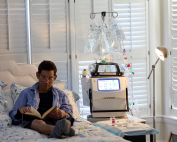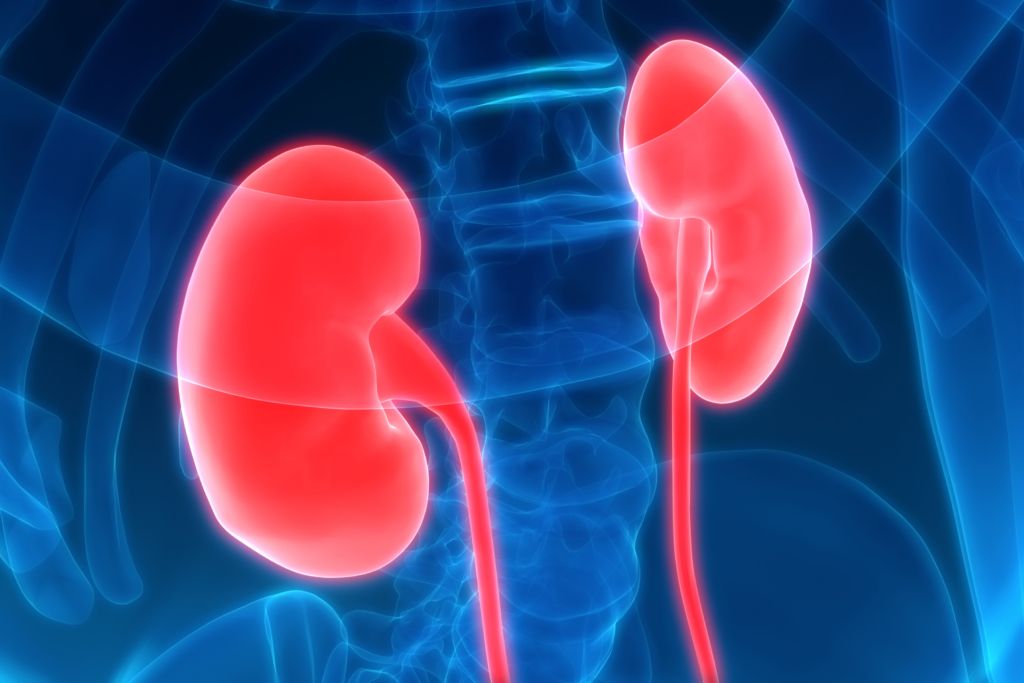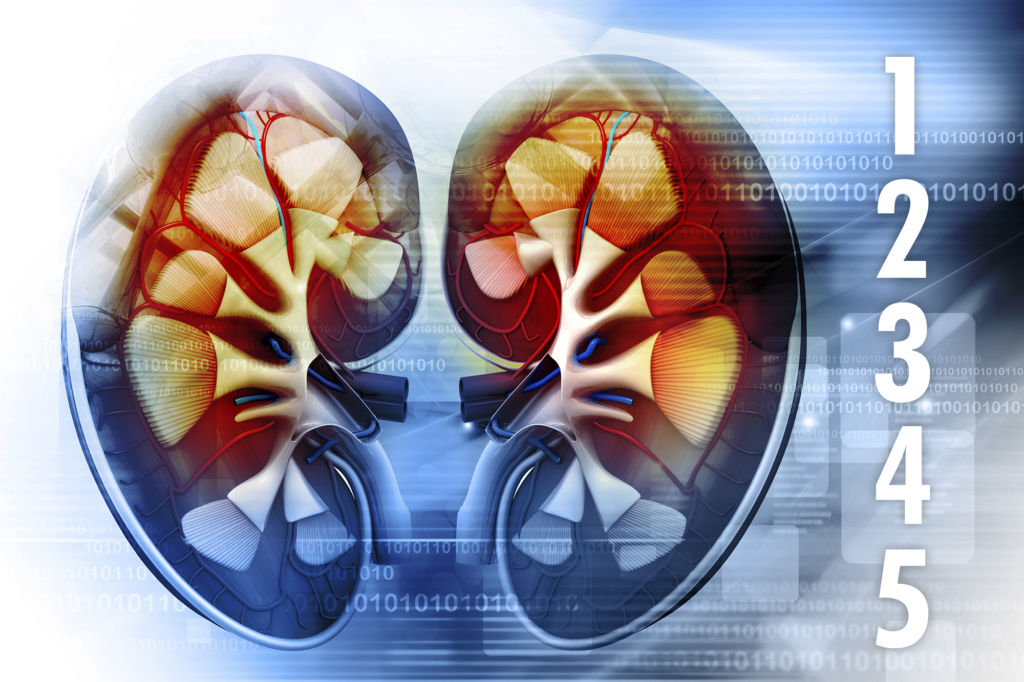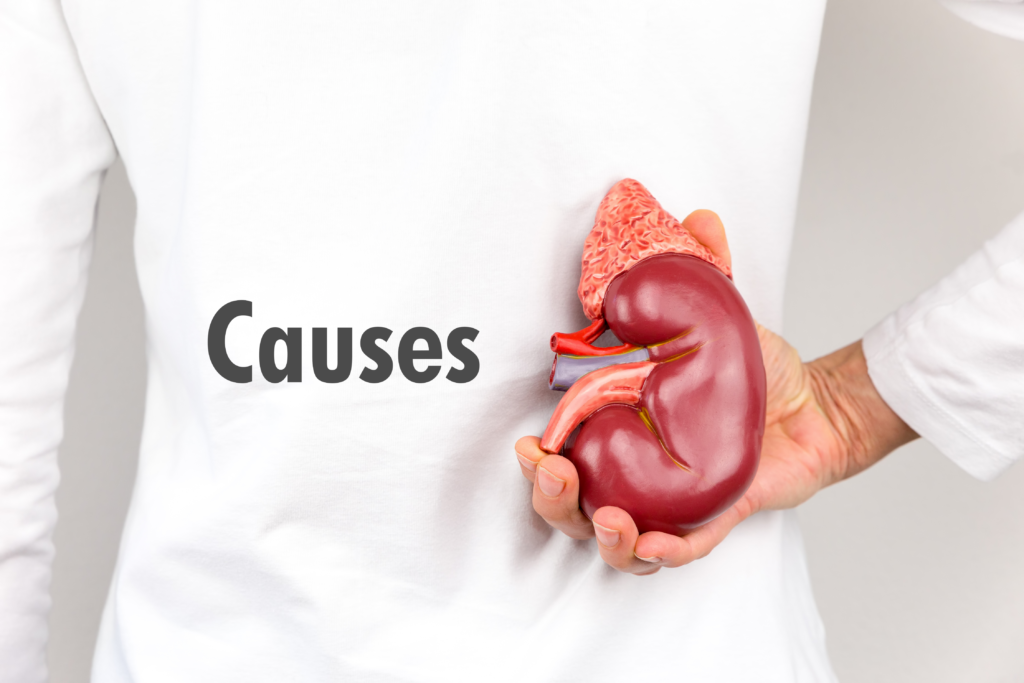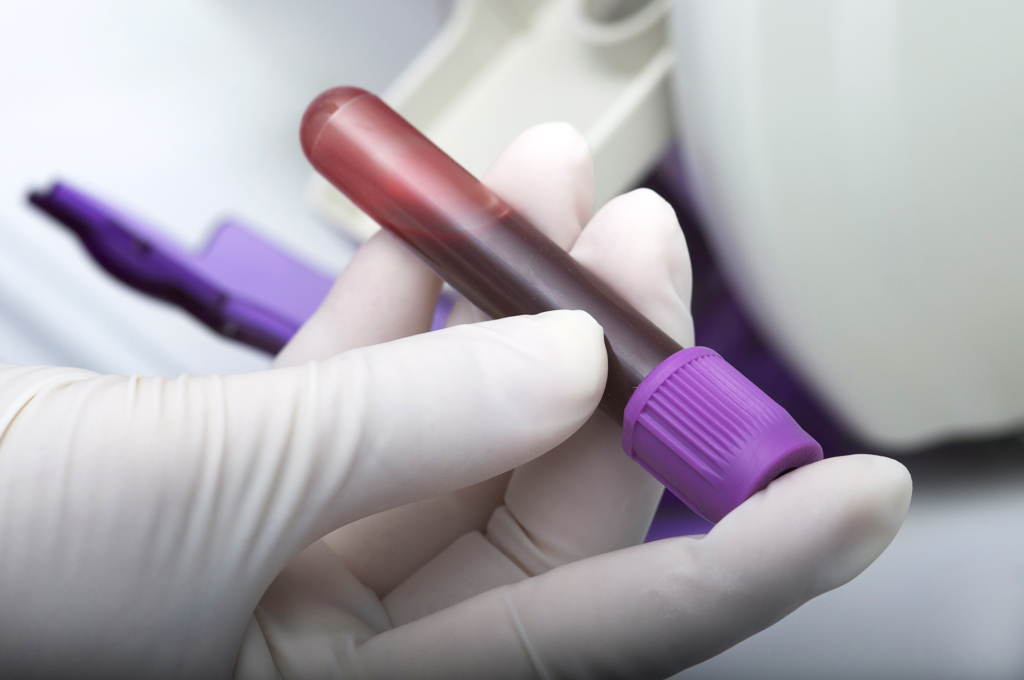What is Kidney Disease?
Explore this section to learn more about chronic kidney disease (CKD). You will find that CKD, which can happen at any age, can have both common and rare causes. Learn about the symptoms, some of which may not show up until a later stage of the disease.
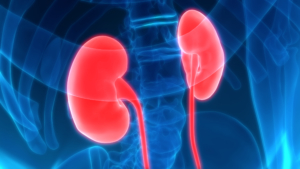 Role of Kidneys
Role of Kidneys
Kidneys are very important organs that have many jobs. They not only remove extra fluids and waste products, but they also help to regulate blood pressure, balance chemicals, maintain bone health, and keep us from becoming anemic.
Chronic Kidney Disease
Nephrons
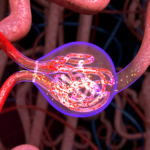
Nephron
Chronic kidney disease (CKD) occurs when kidney nephrons are damaged. Each kidney has about a million tiny filters called nephrons. A nephron is made up of a glomerulus and tubules. The nephrons filter blood. When they become damaged, the kidney becomes less efficient. Over time, as fewer nephrons are available to clean the blood, the kidneys are diseased and less able to keep the body healthy.
Silent Killer
Like diabetes and high blood pressure, chronic kidney disease is called a “silent killer” because there are few symptoms and by the time individuals realize they have a problem, much damage has already been done.
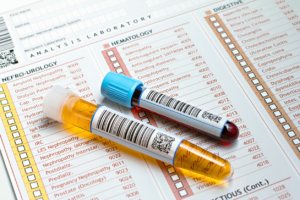
A blood or urine test can tell you how well your kidneys are functioning.
However, there are two tests that can tell you how well your kidneys are functioning. They may be included in the your annual physical evaluation, or you can ask your physician to do them. One is a urine test called ACR (albumin-to-creatinine ratio), which tells how much protein is in your urine. Usually protein is in the blood, and when it is in the urine, it may be a sign of early kidney disease.
The other is a blood test and it tells how much creatinine, a waste product that comes from muscle tissue, is in your blood. From that test, your GFR (glomerular filtration rate) can be estimated which includes your age, race, and sex.
As your kidney function declines, waste products and excess fluid build up in the blood and can make you feel sick.
Related Information
Turning Trials into Triumph: A Journey with Kidney Disease
Alethea Walls, DPC Board Member I've learned that living with kidney disease doesn't mean life stops - it just means you learn to live it differently. My journey with kidney disease began [...]
Nocturnal Home Hemodialysis (HHD): Kidney Replacement Therapy with Less Impact on Daily Life
Brigitte Schiller, MD, FACP, FASN, SVP, Medical Officer: Home Therapies, Global Medical Office, Medical Affairs, Fresenius Medical Care Important progress has been made in the delivery of dialysis. The “one size fits [...]
Staying Hopeful Through the Wait
Hasan Artharee, DPC Board Member Polycystic kidney disease (PKD) runs in my family. I watched my grandmother go through dialysis when I was young, and later my mother during my college years. [...]
Diabetic Kidney Disease
The following information will focus on diabetic kidney disease and is taken from the National Institute of Health (www.niddk.nih.gov): What is diabetic kidney disease? Diabetic kidney disease is a type of kidney disease caused by diabetes. Diabetes is [...]
Ask the Doctor April 2024
Velma Scantlebury, MD, DPC Education Center Health Care Consultant 1. Will a transplanted patient who receives a kidney from a diabetic individual become diabetic? Diabetes results from a lack of the ability [...]
For Mike Guffey, Working Was Key to Staying Positive
Mike Guffey When Mike Guffey began dialysis treatments in 2008, one of his top priorities was to ensure he had a reason to keep moving forward, something to look forward to when [...]


